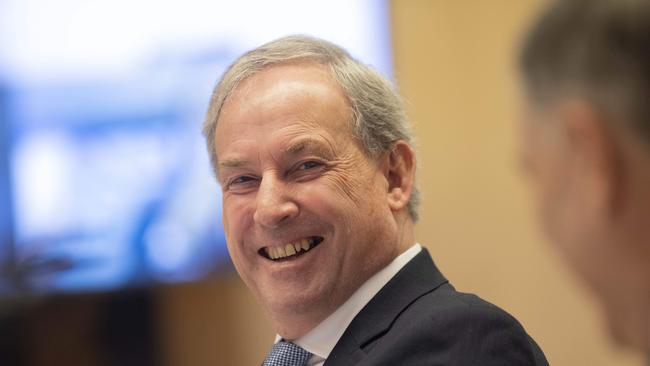Union push to lift aged-care pay 25pc
The Health Services Union will seek a 25 per cent pay rise for more than 200,000 low-paid aged-care workers over four years.

The Health Services Union will seek a 25 per cent pay rise for more than 200,000 low-paid aged-care workers over four years at an estimated cost of $2.2bn.
The HSU will on Thursday lodge a landmark work value case in the Fair Work Commission seeking to lift the wages of personal carers, activities officers, catering, cleaning, and administration workers by at least $5 an hour.
Aged Care Minister Richard Colbeck refused on Wednesday to state a position on the claim, saying the Morrison government would wait for the aged-care royal commission’s report, which is expected in February.
The prompted a strong response from HSU president Gerard Hayes, who accused the Coalition of hiding behind the royal commission.
Mr Hayes said the Fair Work proceedings could take 18 months to two years.
If the government waited for the royal commission report, he said it could be too late for funding to be included in the federal budget in May 2021, and pay rises might not be funded until at least 2022.
The starting rate for a personal carer is currently $21.96 per hour, and the average carer retires with $18,000 in superannuation. If the HSU claim succeeds, a qualified personal carer would see their wages increase from $23.09 to $28.86 an hour.
If the union claim was successful, a Level 1 worker’s weekly wage would increase over four years from $801.40 to $1001.75 while a Level 7 worker’s wage would rise from $973.40 to $1216.75 per week.
Counsel assisting the royal commission recommended that unions collaborate with the government and employers, and apply to vary award wage rates to reflect the work value of aged-care workers.
Mr Hayes said aged care had relied for too long on the goodwill of an underpaid and insecure workforce of women and “it’s time for change”.
“Aged-care workers are skilled. They provide care and support to our most vulnerable, to residents enduring episodes of sadness and at times anger. They should be recognised and paid for their skills,” he said.
“This pay rise is an issue of justice, but it also goes to the sustainability of the system. Four in 10 aged-care workers intend to leave the sector within the next five years because they are at breaking point. A workforce crisis is coming unless we see a significant boost to pay.”
The HSU recently released economic modelling which showed a 0.65 per cent rise in the Medicare levy would raise $20.4bn over four years, funding a pay rise, an additional 59,000 aged-care jobs and close to 90 minutes of additional resident care per day.
In a statement, Senator Colbeck said the government was “committed to a sustainable aged-care sector and the delivery of high-quality care to older Australians, and recognises that the foundation for the provision of quality care is a skilled and supported aged-care workforce”.
“It will consider the recommendations of the Royal Commission into Aged Care Quality and Safety when it hands down its final report in February,” he said.
The HSU claim argues the work of aged-care employees has changed, becoming more complex as the needs of an ageing population and community expectations of care have evolved.
But it says the remuneration of the workforce has not changed beyond the increases awarded through annual minimum wage case decisions.




To join the conversation, please log in. Don't have an account? Register
Join the conversation, you are commenting as Logout